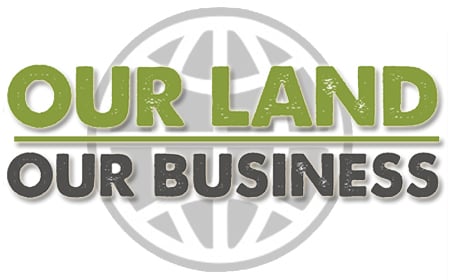Our Land Our Business Campaign

Since 2014, the Our Land Our Business campaign has been demanding the end of World Bank’s Doing Business (DB) ranking and Enabling the Business of Agriculture (EBA).
These ranking systems reward countries for reducing their labor standards, destroying their environment, and providing easy access for corporate pillaging and land grabs. They create a race-to-the-bottom between countries as they clamor for World Bank investment dollars.
Publications
Senegal has made numerous reforms in an effort to garner a higher ranking in the Doing Business evaluation. The latest round of reforms, likely to be praised by the World Bank, favor land grabbing in Senegal, a country where large-scale land deals have become increasingly frequent in the recent years. Since the late 1980s, the World Bank has influenced the Senegalese public policy at the expense of households’ livelihoods, and in recent years...
The Philippines is now hailed as a top ten reformer as a direct result of making economic, regulatory, and administrative policy changes following the advice and direction of the World Bank. As a result of these changes, in 2013 the Philippines became the third most popular destination for foreign investment in land in the world, with 5.2 million hectares acquired since 2006.
Nicaragua is one of the poorest countries in the Western Hemisphere. Foreign direct investment in the country has more than doubled in past years, and the World Bank has been actively promoting foreign investment in the agricultural sector despite the numerous health, social, and environmental problems associated with industrial plantations in Nicaragua. One of the most damaging activities is the production of sugarcane for ethanol. The crop is...
Since the first World Bank Doing Business survey in 2008, Liberia has implemented a series of reforms to improve the “ease of doing business in the country,” leading to its classification among the “top ten global reformers” of the 2010 Doing Business ranking. The subsequent worldwide advertisement of the country’s success attracted foreign direct investments (FDIs). In the agricultural sector, this resulted in giant palm oil and rubber...
In recent years, corporate investments in the agricultural sector and skewed land deals have been a source of intense conflicts with farmers, and have resulted in displacement, widespread human rights abuses, and murders. Yet, turning a blind eye to human rights and land rights violations, the World Bank continues to support agribusiness in the country through the provision of substantial loans.
Pages
Press Releases and Public Statements
Media
Fondazione Nigrizia Onlus
Institute for Agriculture and Trade Policy
Community Alliance for Global Justice
Pages
Multimedia
Our Land Our Business Video
Right now, millions of people are being thrown off their land because large corporations are being given special rights. The World Bank is driving this trend with its Doing Business rankings.
Learn more


